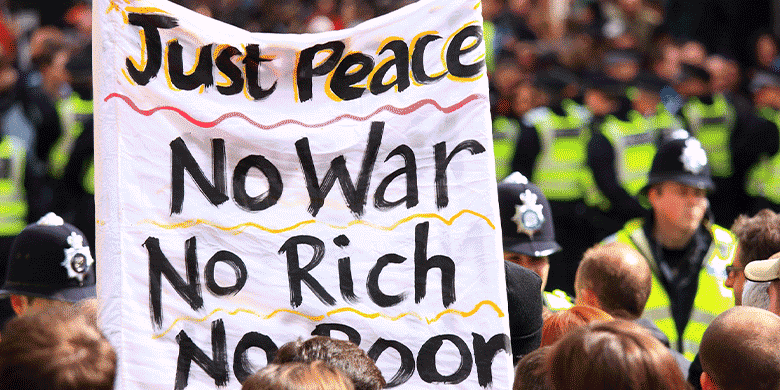
24 January, 2024
Caps as a Social Statement
Initially associated with the sporting world, promotional baseball caps have evolved significantly over the years to become potent tools for conveying messages, supporting causes, and signifying political affiliations. It is a fashion accessory that transcends age and gender, finding a place in almost everyone's wardrobe.
In tracing the history of them, we see its emergence as a part of baseball uniforms in the 1860s. The journey from being a functional sportswear item to a powerful social symbol is rich, witnessing transformations in form, style, and purpose.
They offer a broad canvas for individuals and organisations to imprint messages and logos. The front, back, and even the sides can be used to convey concise yet powerful messages. It became an excellent tool for awareness campaigns, where simple wordings or symbols could resonate with a large audience, spreading the desired message effectively.
Supporting Causes
Over the years, caps have been used prolifically to support various social, environmental, and humanitarian causes.

1) Charity Events
Organisations often release special edition baseball caps during charity events to help gather funds and raise awareness for the cause they are supporting.
- Breast Cancer Awareness: Many organisations globally have released pink caps as part of their campaigns to raise awareness and funds for breast cancer research. This initiative not only aids in fundraising but also promotes awareness through a universally recognized symbol for breast cancer support.
- Support for Veterans: In countries like the UK and the US, caps showcasing national symbols and flags are sold to raise funds to support veterans, offering help and gratitude to those who have served the nation.
2) Environmental Campaigns
Environmental conservation has become a pressing issue, and baseball caps have played their part in echoing the message of sustainability, endorsing environmental campaigns effectively.
- Caps from Recycled Materials: Several brands have embarked on producing caps from recycled ocean plastics and other eco-friendly materials. Not only does this advocate for a more sustainable future, but it also brings a tangible change in the production line, reducing the overall carbon footprint.
- Wildlife Preservation Campaigns: Caps have also been used in campaigns for wildlife preservation. For instance, some campaigns feature endangered species on them to raise awareness about their declining numbers and promote conservation efforts.
3) Humanitarian Causes
Aside from environmental causes, caps have also extended their reach to support humanitarian causes.
- Education: Organisations like UNICEF have used them as a medium to advocate for education for all. Caps adorned with messages advocating education have been popular for raising funds and supporting educational initiatives for underprivileged children.
- Disaster Relief: In the face of natural calamities, they have come to the forefront as merchandise that aids in fundraising for disaster relief efforts. Be it floods, earthquakes, or other natural disasters, caps bearing symbols of solidarity and messages of hope have helped garner support and funds for affected regions.
Political Affiliations
In recent years, baseball caps have become more than just an accessory in the political sphere, playing pivotal roles in campaigns and signalling affiliations.

1) Election Campaigns: Election campaigns often witness a surge in merchandise that includes baseball caps, which become a unifying symbol for supporters, resonating with the ideologies of a political faction or an individual.
- USA, 2016 Presidential Election: One of the most globally renowned examples of a cap playing a significant role in a political campaign is during Donald Trump's presidential run in 2016. The “Make America Great Again” (MAGA) caps became a symbol of his campaign, uniting supporters under a recognisable banner and solidifying their communal identity.
- UK, Brexit Campaign: In the UK, during the crucial time of the Brexit campaign, caps and other merchandise bearing slogans such as “Brexit Now” were seen widely, serving as a representation of a substantial part of the populace’s desire for the UK to leave the EU.
2) Leadership Affiliations: Many leaders, at various points in time, have incorporated them into their informal attire, sometimes using them to convey messages regarding their policy stances or affiliations.
- Justin Trudeau: The Canadian Prime Minister, Justin Trudeau, has been seen wearing caps representing LGBTQ+ rights, with rainbow symbols, expressing solidarity and support for the community, conveying a message of inclusivity and tolerance.
- Boris Johnson: UK Prime Minister Boris Johnson has been spotted on numerous occasions wearing caps that promote British goods or businesses, showcasing his support and encouraging others to back British enterprises.
Youth and Subcultures
Baseball caps have transcended their origin as mere sportswear items to become a prevalent form of self-expression amongst the youth and in various subcultures. They're not just a fashion statement; they're a declaration of identity, representing many beliefs, affiliations, and stances.

1) Music and Art
Baseball caps have a remarkable presence in the realm of music and art, serving as a canvas for artists to convey their viewpoints or advocate for social issues.
- Hip-Hop Culture: Artists like Jay-Z and Kendrick Lamar have donned caps that often spotlight social issues like racial inequality or political advocacy. Jay-Z's line of Roc Nation hats, for example, is more than just a brand; it represents a cultural movement.
- Punk Rock: In the punk rock scene, caps with anti-establishment logos and slogans are common, reflecting the genre's roots in social and political critique. Bands like Green Day have used merchandise, including caps, to make statements against war or government actions.
2) Street Culture
In street culture, they have evolved to be not just an accessory but an emblem carrying a load of significance, sometimes indicative of an individual's allegiance to certain groups or philosophies.
- Skateboarding: Baseball caps are a staple in skate culture, sometimes used to represent one's affiliation with particular skate brands or local skate parks.
- Graffiti Artists: For graffiti artists, they can be a functional piece (shielding the face from paint) and a statement of identity. Caps can carry tags or logos that signify an artist’s signature or crew.
Fashion Industry
In the fashion world, they are far more than a simple accessory. It has become a vehicle for designers to articulate social, cultural, and political messages, transforming the humble cap into an emblem of higher artistic and societal commentary.

1) High Fashion Meets Activism
- Dior: In recent years, the luxury fashion house Dior released a series of baseball caps with the word "Feminist" boldly embroidered across the front. This was more than a fashion statement; it was political, aligning the brand with the broader social discourse on gender equality.
- Vetements: Known for pushing boundaries, Vetements has released caps with phrases like "Capitals" and "Haute Couture," which critique the fashion industry, questioning high fashion labels' value and authenticity.
2) Streetwear Influence
- Supreme: A brand deeply rooted in skate and street culture, Supreme frequently collaborates with artists and social commentators. They've released caps that spotlight social issues, including collaborations with socially active graffiti artists.
- Off-White: Founded by Virgil Abloh, Off-White often employs caps to mirror social themes, such as caps with the words "For Walking" written on them, a commentary on the functionality versus the aesthetic appeal of fashion items.
3) Celebrating Cultural Heritage
- Gucci: The Italian luxury brand showcased a line of baseball caps featuring traditional cultural elements. By incorporating indigenous patterns and symbols, the caps serve as a tribute to cultural diversity and an open rebuke against cultural appropriation.
- Kenzo: Celebrating its Japanese roots, Kenzo has used them to pay homage to traditional Japanese art and culture. With designs featuring cherry blossoms or mythical creatures, the brand blends its heritage with modern style uniquely.
4) Upcycled and Sustainable Fashion
Stella McCartney: A pioneer in sustainable fashion, McCartney's line of eco-friendly baseball caps are made from sustainable materials like organic cotton or recycled polyester. They make a fashion statement and advocate for environmental responsibility.
Individual Expression
Baseball caps are not just collective social or cultural symbols but also highly personal expressions of individuality.
1) Personal Interests and Hobbies
- Sports Fans: Many people wear caps emblazoned with the logo or mascot of their favourite sports team, be it local or national. This simple accessory is a personal banner, showing where their sports loyalties lie.
- Music Aficionados: Fans of particular musicians or bands often don them featuring the name or logo of the artist, sometimes even specific album art or tour dates. For instance, you'll see fans wearing ones that say "AC/DC" or "BTS," signifying their personal music tastes.
2) Political and Ideological Beliefs
- Political Slogans: Beyond the realm of official campaigns, individuals frequently wear them with slogans like "Make Love, Not War" or "Black Lives Matter" to denote their ideological leanings or activism involvements.
- Social Causes: Caps that read "Vegan" or feature symbols like the peace sign can reveal a person's ethical or lifestyle choices.
3) Personal Branding
- Influencers and Bloggers: People who have built a personal brand often create ones with their logo or catchphrase. YouTube stars or Instagram influencers may wear them, displaying their channel or account name as a form of self-promotion.
- Entrepreneurs: Those running their own businesses will wear them featuring their company logo or business name, serving as a walking advertisement for their ventures.
4) Cultural Affiliations
- Geographical Roots: People wear them to signify their hometown or country, whether a "NYC" for New York City or a Union Jack for the United Kingdom.
- Heritage and Ethnicity: Ones featuring flags or traditional patterns can signify cultural pride. For instance, someone of Irish descent may wear a cap featuring a shamrock or the Irish tricolour.
Conclusion
In conclusion, baseball caps have emerged as powerful social statement pieces, championing causes, representing affiliations, and echoing the voices of individuals and groups. They are more than just accessories; they reflect society, a mirror showcasing our times' prevailing thoughts, concerns, and hopes. It stands as a testament to how a simple piece of apparel can transform into a canvas that narrates stories, embodies ideologies, and fosters unity in diversity. It celebrates the power of silent expression, where each one tells a story, wears an ideology, and carries a message, reinforcing that fashion can be a powerful tool of expression and change.
The Caps Only Team

